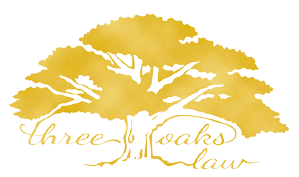Estate Planning
Estate Planning Services in Jacksonville, FL
The Four Pillars of Estate Planning
There are a host of legal documents that help clients achieve their financial and personal goals. However, some documents are fundamental to virtually any estate plan. We refer to these documents as "pillars". While each document has its own purpose, when used in conjunction with your will, healthcare directives, durable power of attorney, and trust documents make up a comprehensive planning strategy to help:
- Transfer wealth to heirs
- Designate end-of-life wishes
- Avoid guardianships
- Protect assets from divorce and creditors
- Carry out philanthropic objectives
- Minimize state and federal estate tax liability
- Plan for business succession
- Provide smooth transitions for minor children.
WILLS
Wills are one of the most well-known estate planning tools. A will is a set of instructions that dictates how you would like your estate to be administered after death. Wills can determine who will inherit what assets, guardians for underage children, and allow you to preserve your choices. If a will does not meet the requirements of state law, the decedent will be treated as having died without a will and the estate will be administered as an “intestate estate.” This means that a state’s intestacy laws will dictate how and to whom an estate will be distributed, as well as who should be appointed as guardian of any minor children. At Three Oaks Law, we believe in preserving choices. This means you are in control of your assets and minor children from beyond the grave.
TRUSTS
Our second pillar of estate planning is the Revocable Living Trust (RLT). Contrary to popular belief, trusts are not just for the wealthy, but rather can be utilized by anyone. Trusts are legal entities that hold title to certain assets which are then managed by a 3rd party—the Trustee—for the benefit of the named beneficiaries. Funding occurs by transferring assets into the trust. “Revocable” means that the trust can be modified by the person who creates the trust (the Grantor), and “living” means it was created during the grantor’s lifetime. There are three major players in the establishment and execution of an RLT—the grantor, trustee, and beneficiary. Initially, you will likely fill all three roles as you control the terms of the RLT (as grantor), manage the property (as trustee), and enjoy the property (as beneficiary). RLTs can be used to achieve several estate planning goals including bypassing probate, providing lifetime incapacity planning, helping you meet charitable giving goals, assisting with estate tax saving strategies, and providing for intended beneficiaries
HEALTHCARE DIRECTIVES
Healthcare directives are a critical part of an estate plan, not just for you but also for your family. By planning for a person’s incapacity, these documents relieve family members of the burden of having to make important decisions during a time of emotional stress. Healthcare directives do this by providing two specific functions: 1. Dictating instructions for healthcare and end-of-life treatment and 2. Appointing a healthcare agent who makes decisions on your client’s behalf, based on your choices. Formally memorializing your wishes is imperative to preserving your desires and avoiding family disagreements. Only you know what’s best for you.
The following issues will be discussed:
- If you want to have/avoid life support treatment (ventilators, nutrition/hydration)
- Whether you want to be an organ donor or accept an organ transplantation;
- Funeral instructions;
- Matters of religious significance like receiving last rights; and
- Family dynamics or other concerns.
The last step is to appoint a healthcare agent. While you may choose a close family member or friend, ultimately the appointee should be trustworthy, someone who stays calm under pressure, communicates well with the family, and can advocate on your behalf. Typically, an agent can be given the power to hire or fire healthcare providers, consent or deny recommended medical treatment, authorize pain relief and obtain ancillary services including long-term care placement.
DURABLE POWER OF ATTORNEY
This document appoints an individual who is authorized to manage your property and finances. Bills must be paid, tax returns must be filed, and investments must be managed, even during acute health episodes. While this responsibility often falls to the spouse, parent, or adult child, there are many inherent risks without a durable power of attorney. The person carrying out the responsibility may be unaware of all the financial decisions which need to be made and/or may not be authorized to access bank accounts or investment portfolios. This is quite possibly one of the most important documents to preserve the flow and functionality of assets and investments. By appointing an agent to act on your behalf, you attain peace of mind knowing that your financial matters will be handled by someone you trust.
Contact Us Today
The information disclosed in this correspondence does not constitute or create a lawyer-client relationship. By submitting this form you agree to receive future email communications from Three Oaks Law.
